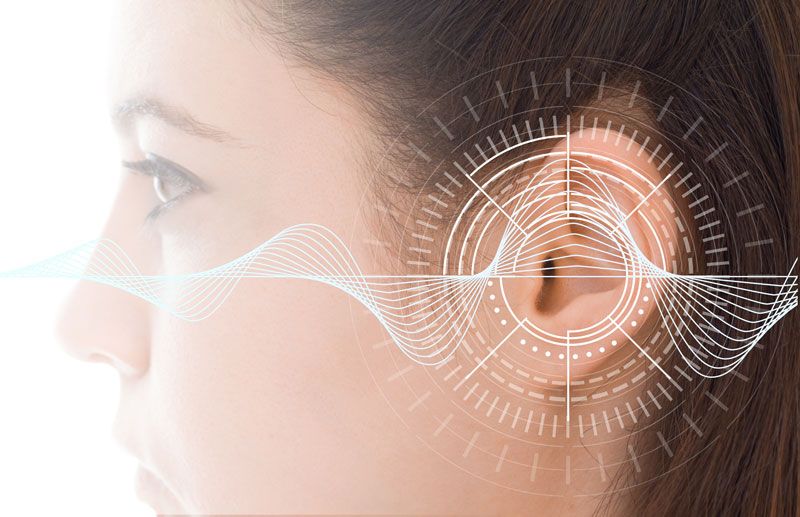What Does an Eardrum Do?

The eardrum has two main roles:
- Hearing – Your eardrum vibrates from sound waves striking it. In turn, structures in your middle and inner ear translate sound waves into nerve impulses.
- Protection – Acting as a barrier, your eardrum protects your middle ear from water, bacteria, and foreign substances.
What is an Eardrum Perforation?
An eardrum perforation is defined as a hole or rupture in the eardrum. Known medically as a tympanic membrane rupture, this tear occurs in the membrane separating your outer ear from your middle ear. A perforation can lead to a inner ear infection and possible hearing loss, though in many cases it will heal on its own without medical treatment.
How Does a Rupture Affect Eardrum Functions?
The eardrum helps us hear sound by vibrating when sound waves hit it and it protects the middle ear from bacteria, moisture and other foreign objects. A perforation can disrupt both important functions.
When an eardrum is ruptured it can allow bacteria to enter the ear and cause an ear infection (otitis media). A rupture or perforation can also create a hole; just like a drumhead is worse at carrying sound with a hole in it, your tympanic membrane is too. This is the reason a rupture can contribute to a loss of hearing.
What Can Cause Eardrum Perforations?
Eardrum perforations are most often caused by:
Infection. Middle ear infections cause a buildup of pressure that may result in a ruptured eardrum.
Injury. Injury or trauma to the ear and head like a sudden loud noise or skull fracture can cause an eardrum to rupture. Inserting objects such as bobby pins or Q-tips in the ear to clean wax can cause an accidental a rupture.
Eustachian tube disorders. Chronic Eustachian tube problems can weaken the eardrum, making it also more prone to perforation.
What Are the Symptoms of a Perforated Eardrum?
Some people are completely unaware of a ruptured eardrum; there may be a complete lack of symptoms or only a feeling of general discomfort. Other times, people will experience:
- A sudden sharp pain in the ear
- A discharge of fluid that may be bloody, clear or pus-like
- A buzzing or ringing in the ear
- Partial or complete hearing loss in the affected ear
- Ear infection
- Facial weakness or dizziness
Are There Any Possible Complications?
If your perforated eardrum does not self-heal in three to six months and you don’t seek treatment, possible complications include:
Temporary Hearing Loss
Hearing loss due to a perforated eardrum is usually temporary. Size and location of the perforation plays a huge role in the eardrum’s healing process and affecting the degree of hearing loss you may experience.
Middle Ear Infection (Otitis media)
A perforated eardrum can allow bacteria to enter the ear. If the perforation doesn’t heal, a small number of people are subject to recurrent ear infections.
Middle Ear Cyst (Cholesteatoma)
This cyst, composed of skin cells and various debris, is very rare. The cyst is a result from a long-term development in the middle ear after your eardrum has been perforated.
How Are Eardrum Perforations Diagnosed?
A doctor will examine your ears with an otoscope to visually identify a hole or tear in the eardrum. A hearing test may be required.
If your physician can’t see the rupture but suspects you have one, they may use a process called tympanometry to create pressure variations in your middle ear. A perforated tympanic membrane produces a flat test response and typically cause a 20 – 30-dB conductive hearing loss.
How is an Eardrum Perforation Treated?
Because the majority of perforated eardrums heal on their own in a few months, no treatment may be needed other than antibiotics to prevent or treat infection. Nonprescription pain medication and a warm compress can help. Large perforations may require surgery.
While the rupture is healing you’ll need to keep the ear dry, avoiding water as much as possible.
How Long Does a Perforated Eardrum Take to Heal?
An eardrum perforation can self-heal after three to six months. If complications arise, it may take longer for the eardrum to heal.
Call Burlington Ear Nose & Throat at (319) 752-2725 for more information or to schedule an appointment.